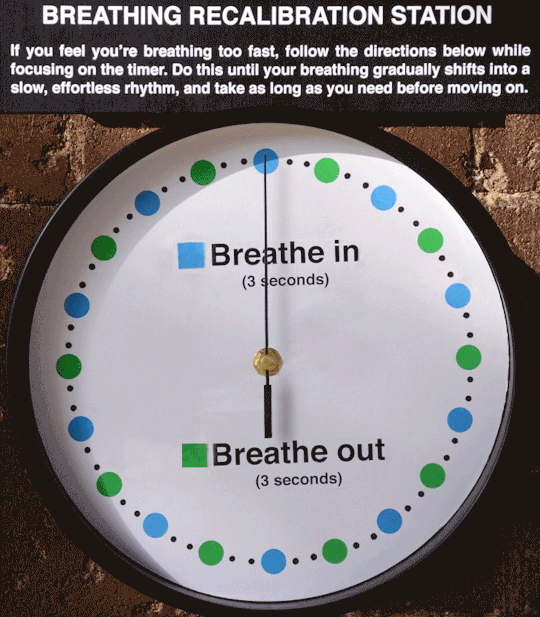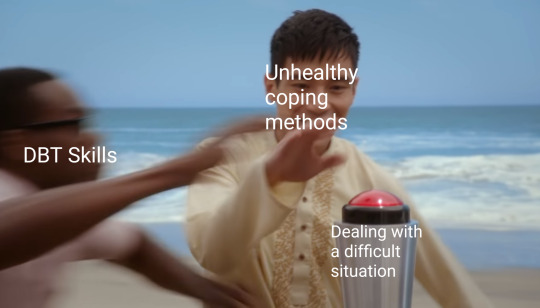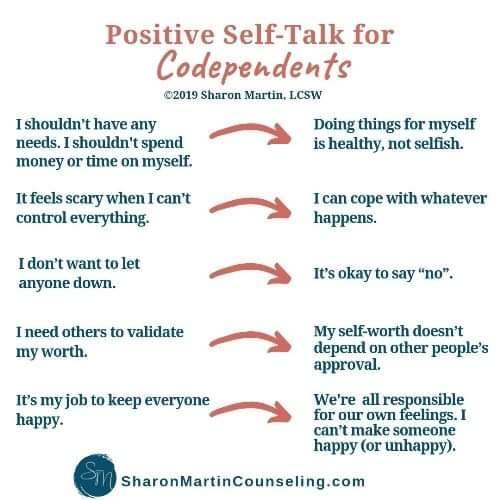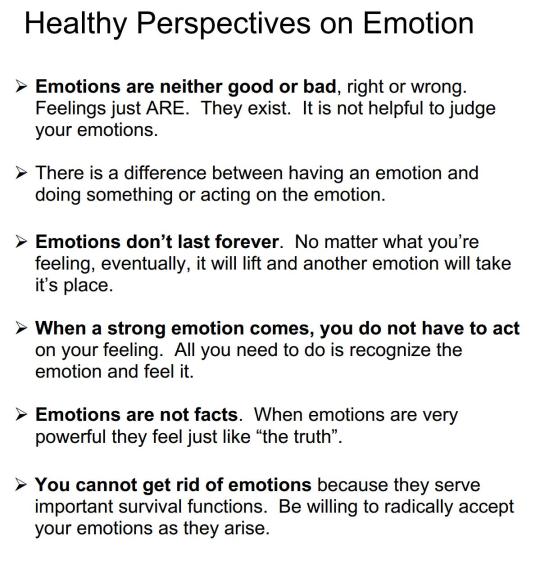Note
Hi, I had to end a friendship with a friend who has bpd last summer because both of us were placing expectations on me for me to be her primary support system and the weight was just too much for me to handle. I didn’t have the words, insight, or emotional energy to explain this to her last year, and ended up basically ghosting her instead after we got into a pretty big fight, so I’m unsure how she feels about me now. As someone who also has bpd, do you eventually come to the realization that the people who left you did so for them and not as a personal attack to you? Or do you label them in your mind as a hurtful person pretty much forever? (No judgement at all, I’m just trying to gauge where her head might be at given her bpd) also, she and I are still friends on social media but I’m thinking about unfriending and unfollowing her to help myself move on. If you were in her shoes, would you prefer I keep you on social media even though we never interact or would a former best friend unfollowing/unfriending be a blessing in disguise? Thank you for your time.
Hi! I’m so sorry you had this experience, but I’m glad you took the space that you needed for yourself.
So it would depend on your friend’s personality, honestly. Some people with bpd would have a hard time taking responsibility for their contribution to the end of your friendship, and so they might blame you for longer, whereas some people would turn the blame inward and think ��of course they left, I’m a disaster.” Each of these is a pretty extreme and emotion-based (rather than logic based) position, and a person is likely to spend time in both mindsets to varying degrees. In this case, she’s likely to have very strong emotions about it because being ghosted is an unfortunately painful experience for anyone.
So her emotional response is not likely to be tempered, she probably is having some really intense thoughts and feelings about the whole situation, which make it harder to see the facts clearly. This is normal for someone with bpd, and she will deal with it on her own time, hopefully. Try not to worry about what she’s thinking and feeling as that will often change rapidly, and it’s not something you’re in a position help, unfortunately.
In terms of social media, I think it would be best to unfollow and unfriend her, since continuing to follow each other will likely just allow the conflict to sort of live on in the back of her head every time you guys see each other’s posts. A clean break is the healthier call, it’s best to fully go your separate ways.
I can understand after having to be one of her primary sources of emotional stability that you would feel a kind of obligation to keep tabs on her and her feelings, but you took a step back from your friendship because it wasn’t a healthy thing for you to have that responsibility on your shoulders. I would recommend that you take a deep breath, take a step back, and let that responsibility go. She’s okay to take care of herself, and it’s okay for you to let her.
Best of luck to you both!
24 notes
·
View notes
Note
i’m currently in the process of getting screened for bpd (and other personality disorders) but because i’m a minor my therapist says even if i do have it she said she won’t put it on my diagnostic list because it’s a “life sentence” and that pretty much all relationships with bpd are “death sentences” and that once people find out i’m borderline they’ll run. it was the opposite of what i needed, instead of comfort, i still got invalidated.
I was in your position when I was younger! Hear me out, Your therapist honestly was wrong for saying that to you, but she’s not wrong for not putting the diagnosis on your chart. BPD is considered a personality disorder even though it is something that can be cured with therapy. Personality disorders are not usually diagnosed in minors, because your personality has not finished developing and emotions are more intense, just naturally because of where you’re at in your development. A lot of people may exhibit disordered emotions etc which reduce or go away naturally in adulthood.
The thing about BPD is that because people don’t realize it can be mitigated or treated, there is a huge stigma against it, and for someone with BPD, having that diagnosis can, in some circumstances, be detrimental to their recovery.
Nothing about a bpd diagnosis is particularly comforting, whether youre receiving it or being told that you can’t receive it yet, it doesn’t feel good. The important thing to focus on is your access to therapy and DBT specifically.
As someone on the other side of DBT, I’m slowly fighting to have the BPD removed/altered from my chart because I no longer meet the diagnostic criteria.
BPD is not a death sentence, or a life sentence. It’s not permanent, and it’s not a core part of you. It’s trauma that you struggle with, and that you can overcome. I know it feels like she’s saying there’s nothing wrong with you and if there is it’s forever, but that’s wrong.
Idk if that makes sense, I’m in class, but my inbox is open. I’ve been there, and I understand what you’re going through rn <3
39 notes
·
View notes
Note
I’m wondering if you know anything about people with strong BPD symptoms but who are also extremely unattached, and do not have or have never had a FP. they prefer cutting people out and being alone as opposed to receiving any sort of attention, even when in a relationship. they are not clingy, don’t often show affection or attachment, and they do not fear abandonment or loss of love from friends or partners. Is it possible this is not BPD at all? Or what would make someone behave this way?
So of course, quick disclaimer that I am not a therapist or professional of any kind, I’m just a random person with a tumblr blog, so please do get your advice from a professional,
but to answer the question of whether its BPD or not, you would have to look at the rest of the diagnostic criteria outside of the interpersonal relations and see if that resonates. This sounds like an avoidant attachment style brought on by trauma, prompting someone to be extremely independent because they have learned that they cannot rely on other people to attend to their needs, and prefer the safety of being alone rather than the risk of trusting or opening up to people.
It still comes from trauma and anxiety, so there are things about DBT that could help, but it depends on what the rest of the symptoms are like.
Wish you all the best!
15 notes
·
View notes
Quote
One of the hardest parts of recovery is learning that being sick is not the only thing important about you, that you do not have to stay sick to show you are suffering, that suffering was never meant to define you.
(via aplacecalledsilence)
2K notes
·
View notes
Photo


Recovery is not some pill that you take & magically things get better.
Your traumas, understandably, have over-activated your body’s survival system, and the ONLY ANSWER IS FOR YOU to re-calibrate them: all those hormones involved in depression & anxiety.
I promise that I will not give up. I understand that my body is pre-programmed and will want to automatically reset to the default setting when challenged. This does not mean failure but a needed test on my road to more effectiveness.
I promise to remember this process is more like building a muscle than a magic pill that makes everything better.
I completely agree & understand that ONLY I CAN make this work through repeated repetition when things are calm & then during practice events. No one can do this work for me.
1K notes
·
View notes
Text
New DBT Link
Hello Everyone! So, an issue I’ve been having is that, though I do manage this blog on my own now, I am not it’s original creator and don’t have full ownership, so there are some things I havent been able to manage to change. HOWEVER!
I have now added a new link in this blog that will give you a PDF of the DBT workbook!
You can access it on the sidebar of our blog, it’s the last link, or at the url:
https://textsfromtheborderline.tumblr.com/dbtworkbook
Please do download it and look it over and let me know if you need any help!
Ps. If you have an ask I don’t seem to have gotten to, please feel free to send them again as sometimes they get lost and/or buried
Cheers, everyone!
~Z
105 notes
·
View notes
Note
Hey! The link to the DBT Handbook isn’t working for me. Do you have a different one or other similar resources? Thanks so much!
http://l4y8q3zt80.download2.org/dl2.php?id=19134904&h=e9f362b5a46faa9335cb55c5b0e389bd&u=cache&ext=pdf
This one right here!! Sorry Ill try to update the link, 100000% recommend, and if you wanna chat about any of the skills let me know!
~Z
32 notes
·
View notes
Note
Hi, if you have time, I was wondering if anyone had a good rule for when to talk to someone (especially a fp) about something they did that hurt you? Most recently, my fp made a comment that they think I only like them because of my bpd, which made me feel invalidated and question if I can actually love someone. The next day, they acted as though nothing ever happened. Is this something I should bring up even though it's been a while, or should I just let it go? I never know which :/ thank you
Hello dear!
Absolutely DO bring it up, regardless of how long it’s been. Addressing issues like that instead of letting them sit and fester will be beneficial for your relationship in the long term! It’s a very common thing for people with bpd to not face issues like that until they come to a boiling point and everything comes spilling out- it’s much better + healthier to deal with issues as they arise (i know this is easier said than done). Invalidation of thoughts/feelings is a pretty sensitive subject for most people with bpd, so i’m inclined to very much encourage you to deal with this issue as soon as you’re able.
And that’s the thing: There isn’t a time guideline for when you should bring it up, the matter is more about emotional distance/regulation. You don’t want to have a conversation like that when you’re already emotionally heated, it’s best to wait until youve settled and had time to sit with it, and then approach the person about the issue specifically. (Cannot recommend the DEAR MAN skill enough in situations like these)
If you can do a body scan, to see if you’re holding any tension/emotions in your body, that’ll help you understand your state of mind and emotional vulnerability. Thinking about the possible outcomes of the conversation and how you would cope with them *including* the worst-case scenario is part of the skill of coping ahead, and is very useful. Write out what you want to say ahead of time in the DEAR MAN format if you can, and try to remain mindful and grounded during the discussion!
As a last note, in bpd there is a black/white thinking that happens, and so when we have discussions like this there tends to be a filter through which we approach it consciously or subconsciously. It’s either:
“They’re wrong, and horrible to treat me like this” or,
“I’m overreacting and being irrational and a burden.”
You can avoid splitting on the other person by avoiding “kitchen sinking” (bringing up out loud or to yourself every negative thing they’ve ever done) and by checking if your emotion is primary & proportional to the situation.
but it’s important that you treat yourself with self compassion! Sometimes when people are continuously invalidated, they internalize it and invalidate themselves. The stigma of bpd also can often make us feel that the normal human reactions everyone has are “hysterical” if we exhibit them- if you experience either of these biases, remember to stay grounded and check the facts! Mindfulness really is your best friend here.
If you’re nervous and you want to take a look at skills, or if anyone else is looking for these skills, I recommend DEAR MAN (on this blog, or in Interpersonal Effectiveness), Objective/Relationship/Self-Esteem priority (in the Interpersonal Effectiveness section) the piece on recognizing primary/secondary emotions (emotion regulation, and I think I made a graphic for it) and of course mindfulness.
I hope everything goes well, and I’m so sorry you had this experience with them.
Best wishes,
~Z
28 notes
·
View notes
Text
Hi dears!
I just wanted to put this out there: If you’d like some kind of help/advice on an issue and you submit an ask, please make sure to include some context and be specific!
If the ask is too general, it’s difficult for me to formulate advice and recommend skills in any meaningful way- the answer will end up either being very superficial, or not relevant to your situation. I would hate to write you vague nebulous musings about the nature of our disorder.
It’s important to me that this blog is a space where you are encouraged and supported in taking meaningful, actionable steps towards recovery. I want for what is communicated here to be concrete and achievable- these are skills you can reach out for and start to implement and use in every day situations.
I hope all of you are doing well,
~Z
14 notes
·
View notes
Note
Hi there! I’m kinda new to this whole thing and was wondering if you could answer some of my questions! First one, how can I stop thinking that being sick is part of who I am? I’m scared to get better because idk who I’ll be! Second, what do I do if my mom doesn’t want to believe I’m sick. I haven’t been professionally diagnosed, but I can check off every symptom, have been misdiagnosed as bipolar, as well as other experiences that many go through. How do I get her to take me seriously?
Hi anon! Of course, happy to ^-^
Separating your identity from your illness can be really difficult, especially since BPD is something you’ve had practically your whole life. Speaking for my own experience, as soon as you’re able to recognize that you’re ill, it becomes not only a very steady constant in your life, but it also becomes a kind of safety blanket. If you fail, you’ve got something to blame it on, you can displace the responsibility for a breakdown onto your illness, it becomes hard to imagine what and who you would be without it. The more you identify with and entangle with it, the more difficult it is for you to imagine what it would be like if all those parts of your “self” were taken away, and the rest had to come together and coalesce into an individual. For me it felt a lot like jumping off the edge of a cliff, not knowing what the bottom looks like- thats horrifying, it doesnt feel safe at all!
But it is, and its like...Not as big a leap as your brain makes you think it is. All those anxieties about what you’re gonna be if youre not sick anymore are PART of being sick, so in cutting yourself off from the illness, you cut that fear away too.
I graduated from DBT a couple of months ago, and who I am, what I care about, what I like, all of that is still the same. Bpd is something that is blanketed around the outside of who you are, and it touches everything, but really its just a layer that can be peeled away. Separating your identity from your illness is scary because your brain tells you that you’re losing something, but that’s bullshit, it’s the first step to gaining SO much. I don’t feel like less, I feel like I have the freedom to be so much more, you know? I guess it’s hard to explain... Whenever you feel that anxiety, just tell yourself that it’s the right thing to do for yourself, that it’s important, that it’s not dangerous to make it separate from you. It’ll just be thoughts at first, but eventually you’ll internalize it and it’ll be much easier.
As for your mom, unfortunately a common thing for people with BPD is that their experiences/feelings/thoughts have been historically brushed off and denied by the people around them. I would recommend looking up the DEARMAN skill on this blog or in the textbook (which you can also find on this blog) and using that, (writing it out first helps), but also, more importantly, it’s possible that she wont take you seriously, and that she wont validate your experiences, and that’s very disheartening and painful, but it doesn’t change the fact of what you go through.
Her thoughts or opinions don’t shape your reality, and you don’t need her to acknowledge your struggle in order to move forward. Often, we borderlines place a lot of importance on external influences and opinions, and it’s vital for us to move away from that. It would be wonderful if she could listen to you and support you, but you will be okay if she doesn’t.
It would be good to have a frank discussion about your concerns with your mental health team (DEARMAN skill again works great here) in order to get treatment and a way to move forward in order to manage your illness. This will make it easier to talk to your mother about it, even if she doesn’t come around right away. (The authority of the mental health pros should give some weight to what you’re saying in her mind, plus the skills you learn will help you navigate difficult situations like that more easily!)
Best of luck, anon
~Z
21 notes
·
View notes
Note
Hi this is the anon who described speaking minimally to a friend since they pushed me away a while ago. They are the ones that have the BPD and I'm not certain that was clear. I'm worried they've forgotten about me since they only sometimes give me short responses when I try to interact with them. Idk if I'm making their BPD worse...
Hi again anon! Yeah, Im sorry that’s my bad, I answered you as though you had BPD, even though I fully remember reading the situation in your ask lmao sorry sorry.
It’s likely that your friend is just trying to stay away from you because interacting with you is too much for them, or maybe they’ve split on you, and are currently regarding you in a really negative light (don’t take that personally, the black/white thinking that happens in bpd makes it very common for someone to idolize or abhor the person with no in-between)
My best advice would honestly be to just reach out and let them know that you’re there and you care about them, and that you understand that they’re having a tough time with their illness rn. A very neutral even-keeled message that lets them know you care would be the best thing to hopefully not increase their symptoms, but also not take the responsibility of their well-being upon yourself. Plus, one long message saying what you have to say is better than multiple short but ambiguous interactions, in terms of beginning to repair that connection with them.
Remember that interpersonal relationships with BPD individuals are very intense and *very* unstable, and that unfortunately won’t improve until the person with BPD begins the process of changing their coping mechanisms. Because of this the best idea is just to be prepared for that kind of upheaval, and try not to be too upset if something goes wrong.
I hope something in this response or the last one is useful, its always hard to gauge situations like this because they can be so complex in reality you know?
I wish you best of luck!
~Z
16 notes
·
View notes
Text
1. your suffering can’t end until you stop identifying with it. if your sense of self is tied up in your suffering, anyone or anything that attempts to separate you from it will become the enemy because, whether consciously or subconsciously, you will on some level believe they are trying to take away a part of who you are.
2. read the above again.
148K notes
·
View notes
Text
Im thinking of posting something about my experiences with DBT and recovery, what life has been like as a diagnosed borderline before, during, and after DBT. If you have any specific questions, anything you’re curious about etc, do let me know and I’ll try my best to answer/include them!
~Z
17 notes
·
View notes
Text
Hello Everyone!
I would really strongly encourage you all to save/take a look at/keep a copy of the DBT Handbook, which you can find right HERE. If there was ever a book that can change your life, it is absolutely this one. The skills that it outlines are quite literally lifesaving, and implementing/practicing them truly is the best thing you can do to manage your symptoms!
If any of you have any questions on any of the skills in the book, or would like to hear any real life examples, or are wondering what skills you could/could have use to manage a situation I’m happy to answer that as best as I can!
137 notes
·
View notes


